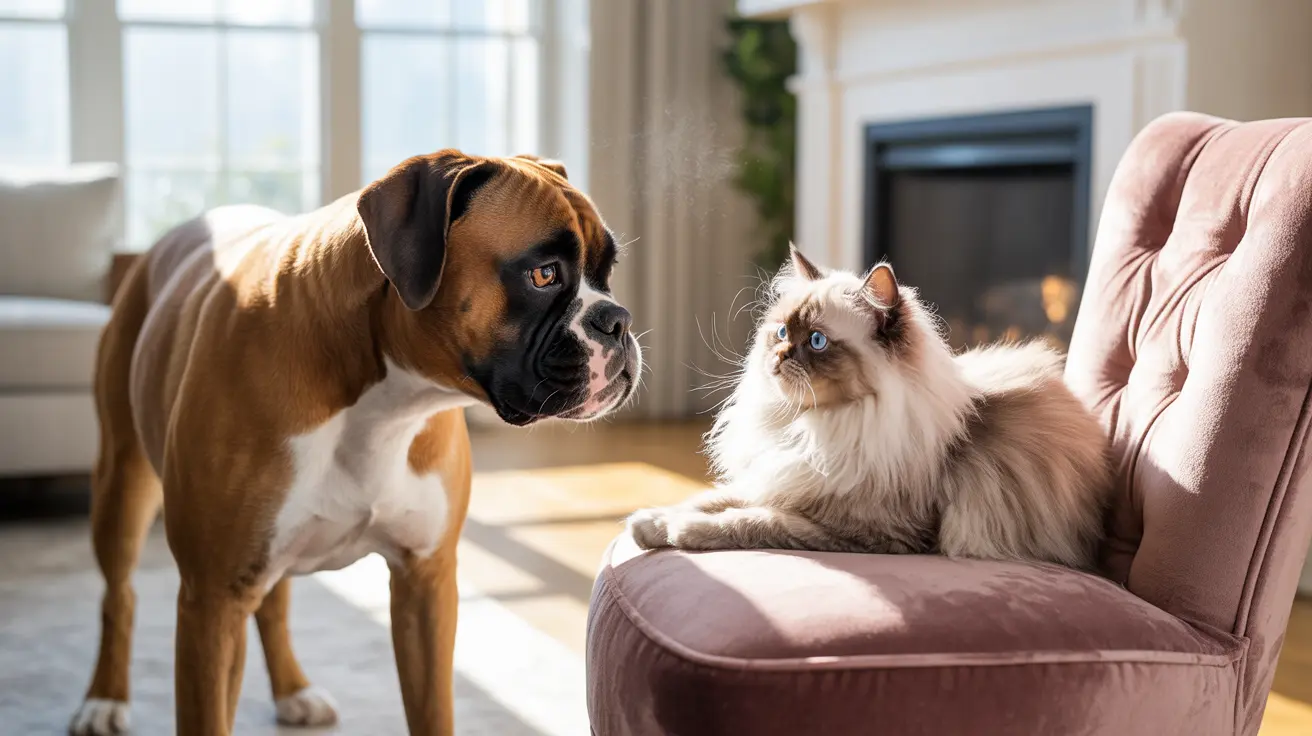Understanding Pitbull Temperament with Cats
Contrary to common misconceptions, Pitbulls are naturally affectionate and people-oriented dogs. While they may have a strong prey drive, this doesn't automatically translate to aggression toward cats. Many Pitbulls demonstrate remarkable gentleness and patience with their feline family members.
Individual personality plays a crucial role - some Pitbulls naturally gravitate toward peaceful coexistence with cats, while others may require more extensive training and socialization.
The Importance of Early Socialization
The most successful Pitbull-cat relationships typically begin during puppyhood. Pitbulls exposed to cats before 16 weeks of age are more likely to develop positive, lasting associations. This early exposure helps prevent the development of chase behaviors and reduces the risk of future conflicts.
For adult Pitbulls without prior cat exposure, successful integration is still possible but may require more time, patience, and structured training.
Creating a Safe Introduction Process
Controlled First Meetings
Start with separate spaces, allowing each pet to become familiar with the other's scent through closed doors or baby gates. Gradually progress to supervised visual contact while keeping your Pitbull on a leash. Reward calm, non-reactive behavior from both animals.
Establishing Boundaries
Set up designated safe zones for your cat, including high perches and escape routes. Ensure separate feeding areas and litter box locations where your cat won't feel threatened by the dog's presence.
Ongoing Management and Safety
Even with successful integration, responsible management remains crucial. Never leave a Pitbull unsupervised with a cat until you're absolutely confident in their relationship - and even then, maintain regular oversight. Provide plenty of exercise and mental stimulation for your Pitbull to prevent boredom-related issues.
Success Factors and Red Flags
Positive indicators include calm behavior, gentle curiosity, and respect for the cat's space. Warning signs include intense fixation, stalking, or any aggressive displays. If you observe concerning behaviors, consult a professional trainer experienced in multi-pet households.
Frequently Asked Questions
Are Pitbulls naturally aggressive toward cats, or can they live peacefully together?
Pitbulls are not naturally aggressive toward cats. With proper socialization and training, many Pitbulls form strong, peaceful bonds with feline companions. Success depends more on individual temperament and upbringing than breed characteristics.
How should I introduce my Pitbull to a cat to ensure a safe and friendly relationship?
Begin with scent exchanges through closed doors, progress to visual contact with your Pitbull on leash, and reward calm behavior. Make introductions gradual and always supervised, allowing both animals to set their own pace.
What training and socialization techniques help Pitbulls coexist with cats without chasing or aggression?
Focus on positive reinforcement, rewarding calm behavior around cats. Teach solid obedience commands, especially "leave it" and "stay." Regular exercise and mental stimulation help reduce prey drive and excitable behavior.
Can adult Pitbulls learn to get along with cats, or is it easier to introduce them when they're puppies?
While early socialization (during puppyhood) typically yields the best results, adult Pitbulls can learn to coexist with cats. Success depends on the individual dog's temperament, previous experiences, and dedication to proper training.
What precautions should I take when letting my Pitbull and cat interact unsupervised?
Always err on the side of caution. Initial interactions should never be unsupervised. Even after establishing trust, maintain separate spaces for each pet and continue monitoring their relationship for any concerning changes in behavior.
Final Thoughts
With patience, proper training, and committed management, Pitbulls can indeed be good with cats. Success requires understanding both animals' needs, respecting their individual personalities, and maintaining consistent supervision and training. While not every Pitbull-cat pairing will work out, many develop deep, lasting bonds that enrich both pets' lives.






